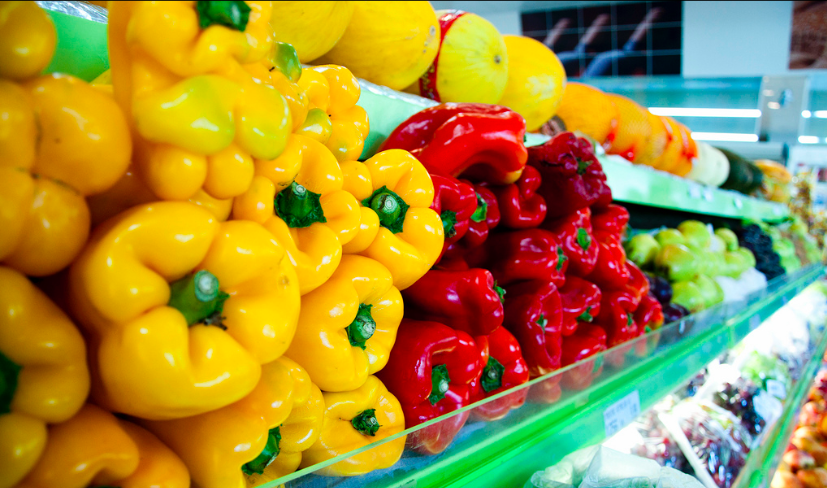by Tanya Loss
It’s seven p.m. and you just got back from a long day of classes at the University of Mass., Amherst. You decide to raid the fridge after the lengthy commute home. Problem is, the fridge is absolutely empty, or consists of only the basic staples including a loaf of bread, a jug of milk and your roommate’s half a stick of butter. What’s a broke college student to do?
Amherst supplies students of all five colleges with plenty of options for grocery shopping, but after speaking to several students during their shopping trip, it seems that students buy to cater toward two main concerns: health or budget. The question is where to go for either one, or both?
The options seem endless in our quaint, roughly 28 square mile town, and students can purchase food anywhere from the trendy Trader Joe’s to the up-and-coming local farmer’s markets. There truly seems to be something for everyone, and a better alternative than stealing food in Tupperware from Berk, but if you’re looking for some sort of guidance on which place best suits your needs, here is what other UMass Amherst students had to say about their grocery shopping.
Here’s the scoop: because many students are concerned with either health or budget-friendly options, most students in the area shop at either Big Y on University Drive, Trader Joe’s or Whole Food’s, both on Route 9. There are over twenty food stores in the Hadley-Amherst area, however, so there must be something that keeps bringing students back to the former.
After getting a chance to speak to a few students during their routine grocery trip to Big Y, a few things were worth noting. For off-campus students that were concerned with budget, Big Y or Trader Joe’s seem to be local favorites.
“I usually just come to Big Y,” says student Courtney Miranda. “It’s quicker and I spend less.”
Miranda isn’t alone; most students agree that Big Y is one of the most budget-friendly supermarkets in the Amherst area. “I’ve been everywhere but usually I come to Big Y because of price, like at Whole Foods cherries are expensive and at Big Y they sell for two bucks,” says student Cassandra Morehouse.
FYI: Both Whole Foods and Big Y post weekly sales items on their websites in case you ever get too lazy to go and compare what’s on sale before your weekly shopping trip.
Student Joe Snyder agreed that he gets his groceries at Big Y for the prices, but is also “health-conscious.” “Both budget and health, but I’m trying to find a balance,” says Snyder about his grocery shopping habits. His shopping cart (pictured) consisted of two loaves of bread, two jugs of milk, mashed potatoes and frozen chicken.
Students also agreed that there is a balance between who pays for their groceries on a regular basis, and for many students, half the time their parent’s pay and the other half the student’s pay. Miranda says, “Who pays depends on how much money I have that month.”
For students who are more concerned with health-conscious food stores, there is an argument to be made for the more expensive supermarket names.
“Whole Foods more closely takes into account what ingredients are going into the products they sell,” says Lauren Talbot, CN, certified clinical nutritionist and author of the blog, “Diary of a Nutritionist.” “They are going to be more concerned about keeping out highly processed ingredients. Whole Foods does not sell foods with hydrogenated oils, or high fructose syrups, for instance,” explains Talbot.
Talbot also says that though “health” stores such as Whole Foods and Trader Joe’s still carry junk food, they are “less offensive” than certain other grocers who’s main concern is more on “low price points than our well-being,” as Talbot explains.
Common mistakes that students make while food shopping, says Talbot, are falling for what are considered “healthy junk food,” and that certain diet trends such as gluten-free aren’t meant to be healthier, but rather are a change in lifestyle for specific people who need them.
In a survey conducted in the 2002 spring semester involving 471 students, Kathryn Silliman, Kathleen Rodas-Fortier, and Michelle Neyman assessed the eating and exercise habits of the students. They found that 63% of the students snacked one to two times per day and 51% rated their eating habits as “poor” or “fair” in healthiness.
When your body feels the need to snack, it is telling you that it doesn’t have enough nutrients. This could be a cause of a diet that consists of mainly pastas and breads, which are notoriously known to leave your body unsatisfied of nutrients. “Foods that truly nourish keep us satisfied longer, and improve our overall well being,” explains Talbot.
Talbot also gave some insightful tips on buying healthy. “It is really important to realize that the produce section is where it’s at,” says Talbot, “Vegetables, although often a tad more expensive upfront, are more satisfying, keeping us fuller longer, and providing more energy to fuel the cells.”
When college students shop right and plan their meals ahead of time, they create good eating habits and allow themselves to budget meals. That way, spending more on healthy food, which tends to be more expensive, can be accounted for ahead of time.
Certain foods are both filling and healthy, and can be incorporated into many meals in a versatile way. Talbot says that gluten-free grains such as quinoa, millet, buckwheat and amaranth can bulk up meals to make them more filling while staying healthy. Steamed broccoli also has similar benefits and has the same filling effect when added to a meal.
“Remember that we are natural living beings and we require natural living foods to have the excellent health we crave,” says Talbot. “We are not cars that run on fuel, so when we treat our bodies as something that can run on just any calorie, we create larger problems down the road.”
If UMass students are looking for additional advice on healthy eating habits, the UMass recreational center offers free nutrition advising upon request.
Buying healthy and on a budget is not a far-fetched goal, and with all of the options that Amherst has to offer, students looking for different benefits while grocery shopping have a variety of resources and possibilities.
Tanya Loss can be reached via email [email protected].







